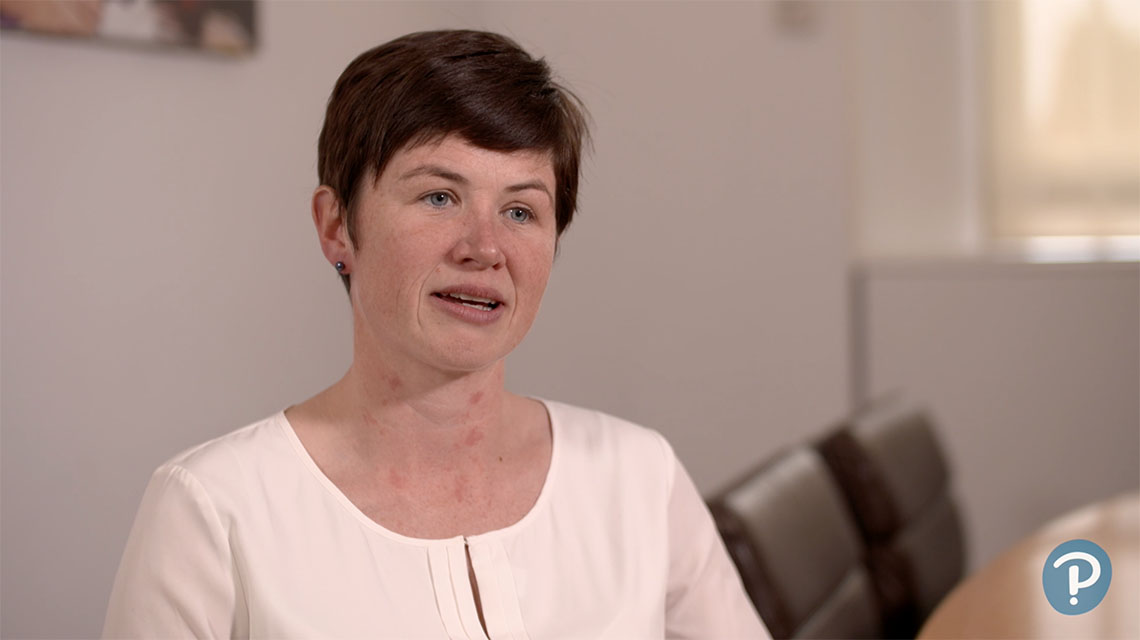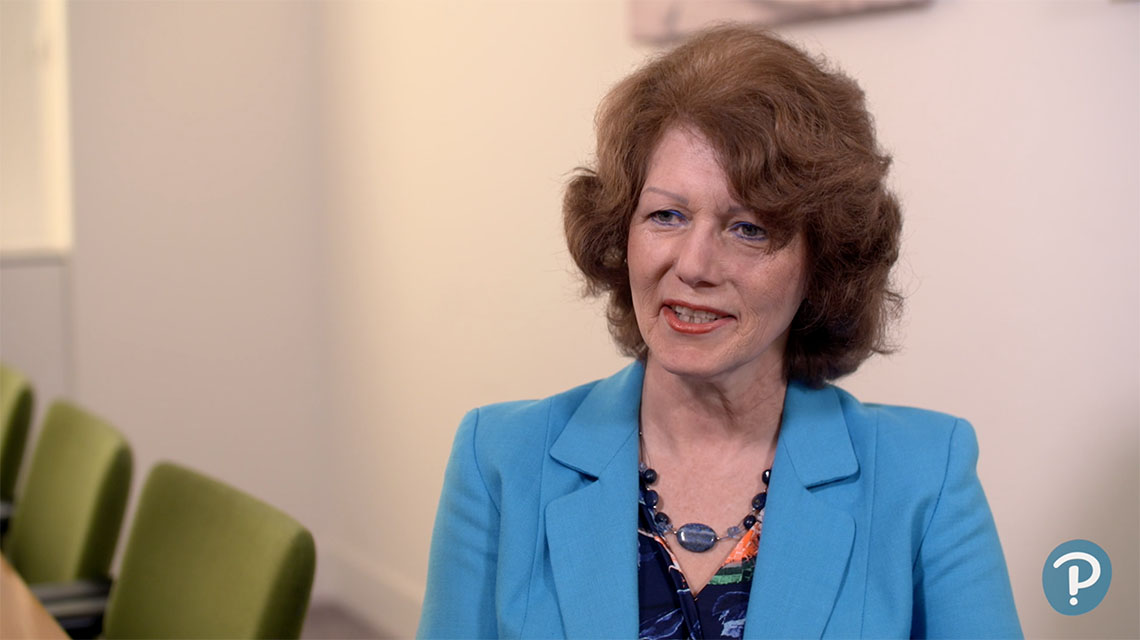
Here you’ll find information about Pearson and our qualifications, including our qualification brands, our history, structure and governance, as well as news and policy, media releases, job vacancies, where to find us and how to contact us.
Our qualifications history
The story of Pearson becoming the UK’s largest awarding organisation didn’t start with the formation of Edexcel in 1996. It began as long ago as 1836, when a royal charter gave the University of London its first powers to conduct exams and confer degrees on its students.
2013
Pearson makes public commitment to efficacy
In November 2013, Pearson announced a series of unique commitments designed to measure and increase the company’s impact on learning outcomes around the world.
Pearson creates new global structure
In May 2013, Pearson unveiled a new structure combining its separate education companies, Pearson International and Pearson North America into one Pearson company organised around three global lines of business – School, Higher Education and Professional.
2011
Pearson acquires EDI
In June 2011, Pearson acquired EDI, a leading provider of work-based learning qualifications for industry and commerce in the UK and internationally, adding the LCCI and EDI brands to the Pearson qualifications family.
Pearson creates Pearson College
In July 2011 Pearson announced the creation of Pearson College, a degree provider based in London and Manchester.
2003
Pearson acquires Edexcel
Pearson acquired a 75% stake in Edexcel, before taking over the remaining 25% in 2005.
1996
Edexcel formed
Edexcel was formed by the merger of the Business & Technology Education Council (BTEC) and London Examinations (ULEAC), which administered GCSEs and A levels. London Examinations’ heritage stretched back, through several mergers of examinations boards, to the University of London Extension Board founded in 1902.
1986
Two-tier system of O levels and CSEs replaced with GCSEs in the UK
This change led to new regional consortia being formed for GCSEs, as CSEs and O levels had previously been administered by different exam boards.
1974
Business Education Council (BEC) created
The Business Education Council (BEC) was established to rationalise and improve the relevance of sub-degree vocational education in FE and HE colleges and in polytechnics.
Within 18 months, BEC took over responsibility for ONCs, ONDs, HNCs and HNDs.
1973
Technician Education Council (TEC) created
The Technician Education Council (TEC) was created to unify technical (vocational) education. TEC eventually took over the validation of courses in further and higher education.
These courses led to Ordinary National Diplomas (ONDs) and Higher National Certificates and Diplomas (HNC/Ds), which were previously the responsibility of professional bodies.
1965
Certificate of Secondary Education (CSE) introduced
The Certificate of Secondary Education (CSE) was introduced in 1965 when the UK government realised that large numbers of students were leaving school without any qualifications.
Aimed at the 80% of 16-year-old students who were not studying O levels, CSEs were administered on a local basis with local boards that had been detached from universities.
1951
General Certificate of Education (GCE) replaces the School Certificate and Higher School Certificate.
The new GCE qualification was split into two levels: ordinary (O levels) and advanced (A levels).
1918
School Certificate and Higher School Certificate introduced
The first national qualifications for England, Wales and Northern Ireland were introduced. The School Certificate was taken at 16 and the Higher School Certificate at 18. Exam boards had previously offered their own qualifications.
1905
First University of London school examinations
The University of London Extension Board was founded in 1902 and the first University of London school examinations were sat in 1905.
1836
Royal charter gives the University of London limited powers to conduct exams and confer degrees on its students.
Become an examiner with Pearson
As an awarding organisation Pearson mark over 9 million exam papers a year worldwide, covering more than 150 different qualifications including: GCSE, International GCSE, AS, A level, International AS/A level, BTEC, T Level, End Point Assessment, NVQ and more.
To do this, we work with over 16,500 assessment experts each year, and you could be one of them.
Pearson has many exciting opportunities for teachers and experts to join our assessment associate* workforce and we currently have vacancies for a wide range of roles.
*Assessment associate is a term we use for those involved in assessment work for Pearson, for example, examiners or external verifiers.
Need any help?
We’ve created some frequently asked questions that should cover all your queries. However, you can also contact us directly should you need further assistance.
At Pearson we always seek to hire the best people who share our values, drive initiatives and improve results. We are committed to ensuring equality at every stage of recruitment. Having a diverse workforce is really important to us and we are working closely with the following organisations and inclusion standards:

Discover the benefits of working with Pearson as an assessment associate and find out what roles are available.

Play
Privacy and cookies
By viewing this third-party content from www.youtube.com you agree to their terms and conditions, privacy notice and acknowledge they may use cookies and pixels for information and analytics gathering.Accept
Need help?
Vacancies
T Levels vacancies
View vacancies
Associate experiences
We asked a number of our associates to talk about their experience of being an associate.
We wanted to know how they become involved in the work and what the biggest challenges were. We also wanted their opinions on how being an associate impacts their teaching career and day-to-day teaching in schools.

Availability
Availability – each role has different demands ( 0:25 sec )
Privacy and cookies
By viewing this third-party content from www.youtube.com you agree to their terms and conditions, privacy notice and acknowledge they may use cookies and pixels for information and analytics gathering.Accept

Benefits
Benefits – for you, your centre and students ( 0:41 sec )
Privacy and cookies
By viewing this third-party content from www.youtube.com you agree to their terms and conditions, privacy notice and acknowledge they may use cookies and pixels for information and analytics gathering.Accept

Challenges
Challenges – what you can expect ( 0:34 sec )
Privacy and cookies
By viewing this third-party content from www.youtube.com you agree to their terms and conditions, privacy notice and acknowledge they may use cookies and pixels for information and analytics gathering.Accept

Commitment
Commitment – balancing with current employment ( 1:47 min )
Privacy and cookies
By viewing this third-party content from www.youtube.com you agree to their terms and conditions, privacy notice and acknowledge they may use cookies and pixels for information and analytics gathering.Accept

Conflict of interest
Conflict of interest – you can work for other awarding bodies ( 0:23 sec )
Privacy and cookies
By viewing this third-party content from www.youtube.com you agree to their terms and conditions, privacy notice and acknowledge they may use cookies and pixels for information and analytics gathering.Accept

Development
Development – gain new skills ( 0:40 sec )
Privacy and cookies
By viewing this third-party content from www.youtube.com you agree to their terms and conditions, privacy notice and acknowledge they may use cookies and pixels for information and analytics gathering.Accept

Flexibility
Flexibility – where you will work ( 0:23 sec )
Privacy and cookies
By viewing this third-party content from www.youtube.com you agree to their terms and conditions, privacy notice and acknowledge they may use cookies and pixels for information and analytics gathering.Accept

Opportunity
Opportunity – progress within Pearson ( 0:30 sec )
Privacy and cookies
By viewing this third-party content from www.youtube.com you agree to their terms and conditions, privacy notice and acknowledge they may use cookies and pixels for information and analytics gathering.Accept

Specification experience
Specification experience – you do not need to currently teach the Pearson specification ( 0:28 sec )
Privacy and cookies
By viewing this third-party content from www.youtube.com you agree to their terms and conditions, privacy notice and acknowledge they may use cookies and pixels for information and analytics gathering.Accept

Teaching experience
Teaching experience – what is required for the role ( 0:18 sec )
Privacy and cookies
By viewing this third-party content from www.youtube.com you agree to their terms and conditions, privacy notice and acknowledge they may use cookies and pixels for information and analytics gathering.Accept

Time management
Time management – fitting the role around existing commitments ( 0:29 sec )
Privacy and cookies
By viewing this third-party content from www.youtube.com you agree to their terms and conditions, privacy notice and acknowledge they may use cookies and pixels for information and analytics gathering.Accept
References
You may have been contacted by the Pearson Associate Recruitment team asking to provide a reference for an individual that has applied for one of our Pearson assessment associate vacancies. Alternatively, you may be an employer looking to obtain a reference for one of our Pearson assessment associates.
If either of these scenarios are applicable to you, please complete our References form and a member of the Associate Recruitment team will contact you with further details about your/our request if needed.










